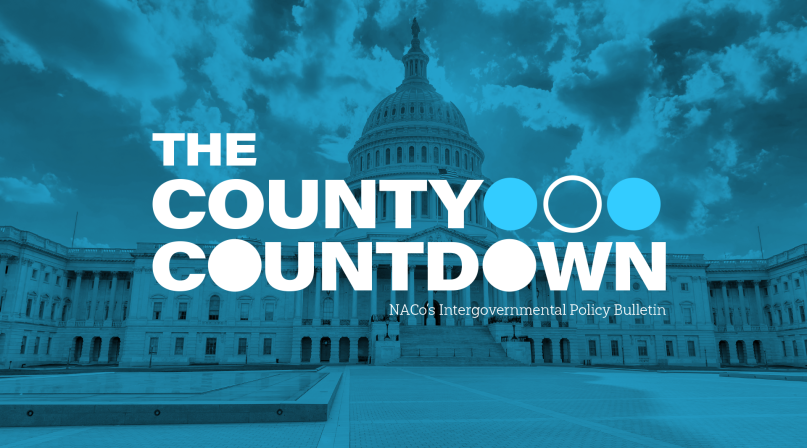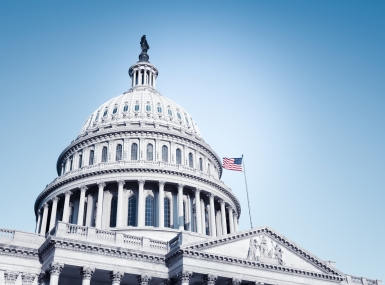County Countdown – April 21, 2025
Upcoming Events
Related News

Every other week, NACo's County Countdown reviews top federal policy advocacy items with an eye towards counties and the intergovernmental partnership.
ARPA reporting deadline next week
Next Wednesday, April 30, is the deadline for counties to submit Project and Expenditure Reports for the American Rescue Plan Act State and Local Fiscal Recovery Fund.
- Required for all counties: To remain in compliance with the reporting requirements, all counties must submit a report, including counties that have already spent their entire ARPA allocation.
- Detail is key: When submitting the Project and Expenditure Report, provide as much detail as possible to ensure Treasury officials have a clear picture of how funds were obligated to support communities and residents.
- NACo is here to help: If you have received a notice of noncompliance, please reach out to NACo for support.
Congress moves forward on reconciliation
Both the House and Senate have adopted budget proposals. Counties are closely monitoring the potential impacts of the reconciliation process on local priorities, including the preservation of tax-exempt municipal bonds.
- Support for county priorities: Last week, 12 members of the House of Representatives sent a letter to House leadership expressing concerns over major cuts to Medicaid, and a bipartisan Dear Colleague letter also in the House shared support for preserving the tax-exempt status of municipal bonds.
- Timeline: Congress is looking to move quickly on this reconciliation process, with the goal of delivering a reconciliation bill to President Trump by the end of May.
FEMA announces cancellation of disaster mitigation funding
On April 4, FEMA announced it will not allocate $750 million this year for the Building Resilient Infrastructure and Communities (BRIC) grant program. The cancellation follows a broader review of FEMA grants and a recent executive order by President Trump emphasizing state and local responsibility for disaster preparedness.
- What is BRIC: Counties are directly eligible for BRIC, which funds hazard mitigation projects aimed at reducing long-term disaster risks and costs.
- County impact: The cancellation of BRIC funding could lead to disruptions to or cancellation of county projects, additional costs for counties and reduced capacity for long-term risk reduction.
- NACo action: While FEMA continues to evaluate its overall grant portfolio and priorities, NACo and our Intergovernmental Disaster Reform Task Force remain committed to modernizing federal disaster policies; strengthening intergovernmental partnerships; and enhancing local disaster mitigation, response and recovery capacities.
HHS terminates funding for mental and behavioral health programs
The U.S. Department of Health and Human Services has terminated funding for at least five county-eligible federal health programs previously set to run through September 2025.
- Impacted programs: The Community Mental Health Services Block Grant Supplement and the Substance Use Prevention, Treatment, and Recovery Supplemental Grants – both of which counties rely on to provide critical prevention and treatment services for substance use disorders – are examples of impacted programs.
- Impact on local public health: The abrupt loss of funding affects the stability of local public and behavioral health systems, including 988 crisis call centers, prevention initiatives and community health worker programs.
Congress considers reauthorization of county cybersecurity program
Authorized under the Bipartisan Infrastructure Law, the State and Local Cybersecurity Program (SLCGP) provides critical funding to state and local governments to enhance cybersecurity readiness and protection. The $1 billion program is set to expire on September 30, 2025 unless it is reauthorized by Congress.
- Benefits to counties: The SLCGP requires state recipients to pass through 80% of funding to local governments, strengthening counties’ cybersecurity readiness and ability to respond to and protect against cybersecurity threats.
- Take action: County leaders should reach out to their members of Congress to urge them to reauthorize the program and ensure continuity of funding for critical cybersecurity efforts.











